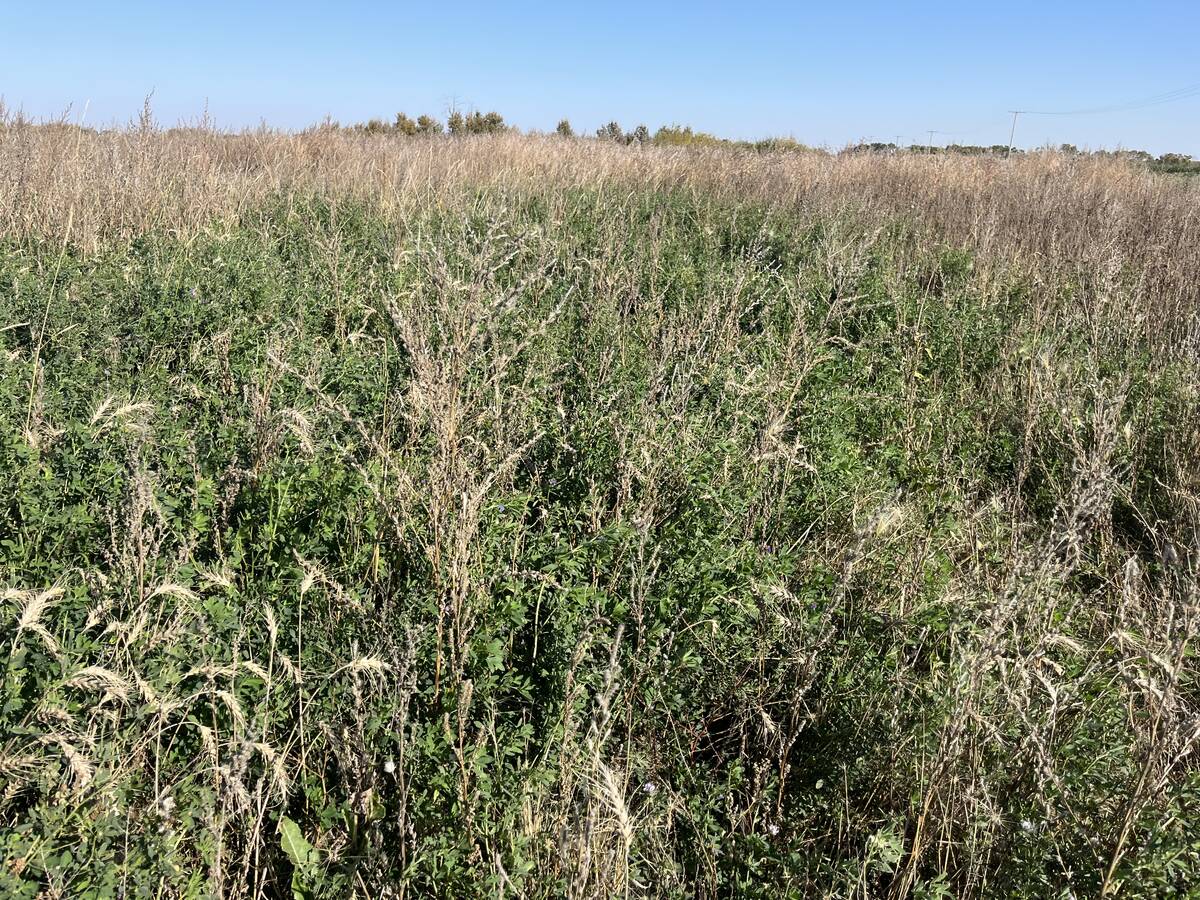If all goes according to plan, the University of Calgary veterinary school will be accepting students in fall 2007.
Building a faculty and staff from scratch and getting established in new buildings is a major challenge, said Alastair Cribb, named dean in mid-May.
The school wants to build ties with the Western College of Veterinary Medicine in Saskatoon and the University of Alberta, but plans a different teaching approach.
“To be an accredited program, students must attend eight semesters. Calgary will condense those into three years rather than four years offered at other institutions,” said Cribb.
Read Also

Dormant seeding forages frees up farmer time and gets ahead of weeds
Dormant seeding isn’t common practice and can appear daunting, but there are some techniques to give Manitoba farmers an edge
The school will not have a teaching hospital; instead students will go into the field to get hands- on training in a variety of practices and farms. In addition, classroom time will be offered at the university along with studies at an animal facility set up north of the city.
By visiting farms and practices, students will see a variety of livestock animals in the Calgary region, horses at the Spruce Meadows equestrian centre, as well as wildlife and exotic species at the Calgary Zoo.
“The veterinary community in Alberta is really keen on that happening. We will also make sure they see all the different types of practices,” he said.
“We are essentially trying to work out a program where we have two different types of practices. They’ll have the practices that may take in three or four students at a time and we’ll have practices that only take one student at a time.”
The university also hopes the program gives students a dose of reality in the business world. They will receive business training to learn about fair billing, management of a practice and dealing with clients.
The school will accept 30 Alberta students per year. Requirements will be published this July on the university website for prospective students who should graduate in 2010.
“What we are looking for are people who have the aptitude, the skills and the interest to be a veterinarian,” he said.
Alberta is still funding 20 seats with the University of Saskatchewan program.
One of the most important steps to opening the college will be accreditation. The American Veterinary Medical Association’s Council of Education was to come for a full consultative visit at the end of June. If successful, the school will receive a letter of reasonable assurance next March to accept students’ applications for the fall of 2007.
The program has three areas of focus.
The first is production animal health and rural practice. The school does not offer a companion animal component.
Second is the study of the ecosystem and public health that includes wellness for the agriculture community and food safety. Within that stream zoonotic diseases like West Nile virus, BSE and avian influenza and public health will be studied.
“One of the key components of the course will be research and the ability to respond in a crisis so we are recruiting people with expertise in zoonotic disease and infectious disease who can help address those issues,” Cribb said.
The third area focuses on research to encourage students to continue in that direction.
So far the school has hired 14 people. About 60 faculty members are needed to work on the campus as well as the large animal facility north of the city.
Cribb came from a small farm near Saskatoon where his father was a veterinarian. He received his degree from the Western College of Veterinary Medicine at the University of Saskatchewan in 1984. Following a small animal internship at Michigan State University, he entered mixed animal practice in Nova Scotia.
He loved the work but especially liked calving each spring.
“It’s all fun and it’s all interesting. The most satisfying moments are when a farmer says ‘since you started working for me, we’re doing a lot better’, ” he said.
His most recent work was at the University of Prince Edward Island, where he was the founding director of the P.E.I. Health Research Institute and held a Canada research chair in comparative pharmacology and toxicology.















